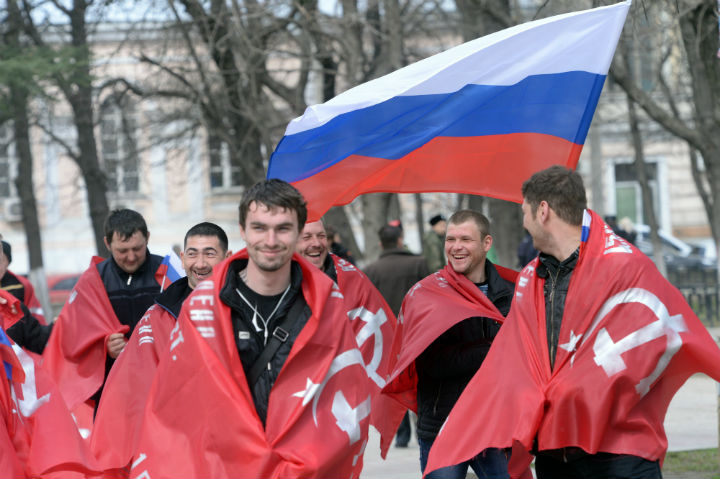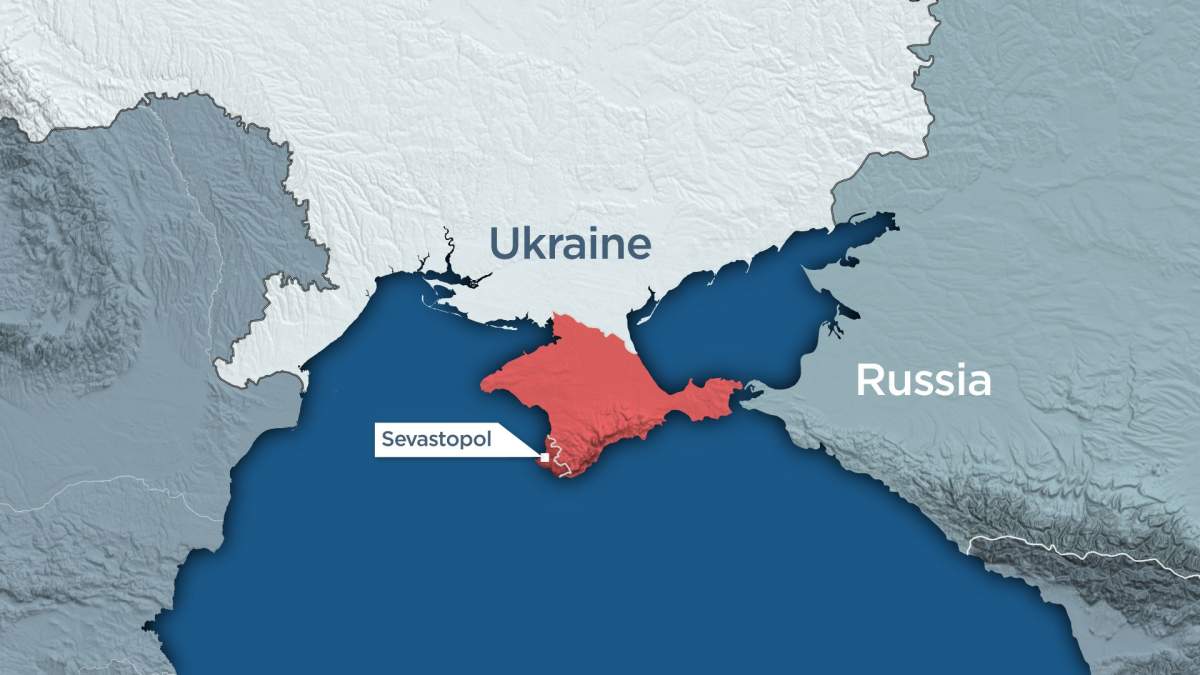UPDATE: Crimea parliament declares independence after vote

Residents of Ukraine’s Crimean peninsula head to the polls this weekend to decide whether they wish to remain a part of Ukraine or join Russia. As there are a lot of questions surrounding the referendum, Global News goes after some of the answers.
When is it happening?
Crimeans will cast their votes on Sunday, March 16 to decide whether they will cease being a part of Ukraine and return to Russian rule. The results are reportedly due to be released the following day.
What will the referendum questions be?
The BBC reported this week that Crimeans will be asked two questions on the referendum ballot to determine the direction they want the autonomous region to move in.
The first will ask, “Do you support reunifying Crimea with Russia as a subject of the Russian Federation?” The second question will be “Do you support the restoration of the 1992 Crimean constitution and the status of Crimea as a part of Ukraine?”
Crimea is currently an autonomous republic that is a part of Ukraine. But when the 1992 constitution came into effect, it declared that Crimea was not a part of Ukraine. The constitution was later altered to make Crimea an autonomous republic within Ukraine.
What the ballot isn’t clear on is which version of the constitution should be restored. Most analysts agree that there is no clear option to simply maintain the status quo.
Basically, the options are: leave Ukraine and become a part of Russia or remain an autonomous region that may or may not be a part of Ukraine.
According to BBC‘s translation of the referendum ballot, choosing both options renders the ballot invalid.
Here’s a look at the ballot
As far as Crimea’s pro-Russian government is concerned, the republic is already independent. Parliamentarians voted to declare Crimea independent of Ukraine on Mar. 10.
What happens to Sevastopol?

Get daily National news
While Crimea is a recognized autonomous republic within Ukraine, at the moment, the port city of Sevastopol and its surrounding area on the southwestern tip of the Crimean peninsula are not a part of the autonomous area.
That area is a part of Ukraine and has a special administrative status as a city. The only other place in Ukraine with such a status is the capital city Kyiv.
But aside from the fact Russia has had an agreement to base its Black Sea naval fleet in the city since Ukraine’s independence, Sevastopol has a majority Russian-speaking population — 71.6 per cent according to the 2001 census (the next national census was postponed until 2016).
Sevastopol’s city council voted on Mar. 6 to take part in the referendum, but as a “separate entity.” Russia’s ITAR-TASS reported Sevastopol residents “will be asked if they support Sevastopol’s accession to Russia and offered to answer the questions of the Crimean referendum.”
More than 50 per cent of the registered electorate — an estimated 301,000 people — will have to turn out for the vote, if it’s too be recognized, ITAR-TASS reported.
Is it legal?
That depends on who you speak to. Russia and the Crimeans consider it a legal vote, while western powers and the Ukrainian government do not.
Canada’s Foreign Affairs Minister John Baird said Thursday, the vote was an “an illegitimate stunt” and said the Canadian government has no intention of recognizing the result.
READ MORE: Harper will travel to Ukraine to meet with government amid crisis
U.S. Secretary of State John Kerry, following a meeting with Russian Foreign Minister Sergey Lavrov, held the Obama administration’s stance that the referendum was illegal.
Kerry said if the Russian parliament ratifies a Crimean vote in favour of accession to Russia it would be akin to a “backdoor annexation.”
Russia, meanwhile, takes issue with any claim that the vote is illegal. State-owned news agency Russia Today pointed out other examples of independence referendums western governments (read: the United States) has not “taken issue with” – including Kosovo, South Sudan, the Falkland Islands, Scotland (which has yet to happen) and Spain’s autonomous region of Catalonia (also yet to happen).
It’s worth noting that Spain has an issue with the Catalonian referendum.
Also worth noting: none of the referendums Russia Today mentions were called and carried out in just 10 days.
READ MORE: What would the U.S. have said if Quebec had voted yes?
As for if the vote will be recognized by the United Nations, the U.S. is putting forth a draft resolution calling on the Security Council that would declare the referendum illegal. Russia, like the U.S., is a permanent member of the Security Council and plans to use its veto power to quash the resolution, Reuters reported.
How much will the referendum cost?
The English language site for Russia’s state-owned Ria Novosti cited a tweet from a Twitter account attributed to Crimean Prime Minister Sergey Aksyonov saying the referendum would cost around $1.8 million.
Which countries will send observers to monitor the vote?
According to Russian News agencies there will be 50 observers from 21 countries monitoring Sunday’s referendum. Among the countries observers will represent are France, Italy, Spain, Belgium, Poland Greece, Israel and the United States. (Sources: Ria Novosti, Voice of Russia, ITAR-TASS)
If Crimea votes to join Russia, when will that happen?
That could happen as soon as the end of this month if the Crimean Parliament has its way, according to Russia Today.
In a report published on Mar. 8, Russia’s Duma indicated it will debate the issue after the vote is complete.
But Vladimir Konstantinov, spokesperson for the Crimean government, said the goal is for a swift transition.
“The transition from one jurisdiction to the other is a complicated process, but I think in the case of favorable outcome of the referendum, the Crimeans will be able to feel as citizens of another country within one month – within March,” Konstantinov said.
*With files from The Associated Press









Comments
Want to discuss? Please read our Commenting Policy first.